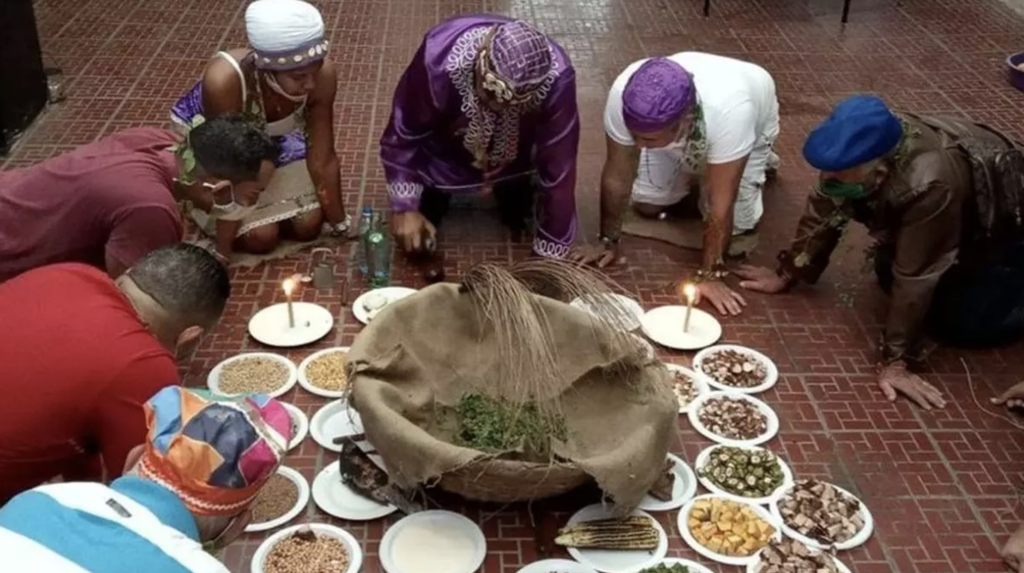Many Cubans look to the orishas for answers to their problems or ask them to help them emigrate

14ymedio, Laura Bécquer/EFE, 15 June 2024 — When a Cuban woman, Elvira García, knocked on the door of the babalao (Ifá priest) she did so looking for answers to her despair in the Afro-Cuban religion. The retired teacher was at her limit. Because of her difficulties in putting food on the table with the problems of shortages and inflation in Cuba, but also because of her daughter’s illness and the lack of medicines.
She also sought, she acknowledges, to reunite with her family – who had emigrated to the United States – and a spiritual refuge in the face of loneliness and difficulties. “I never professed any religion, but when my daughter had to have throat surgery and she was very ill, I looked to the orishas for the answers that could not be found on the earthly plane,” she explains.
It was then that she arrived at the house of babalao Daniel Oliva, who says that García is no exception. This 46-year-old Yoruba oracle scholar claims that he has seen a “religious explosion with the growth of believers due to the economic crisis in recent years.” This opinion is shared by experts and people linked to different religions on the Island. In the case of these traditional beliefs – which may be practiced by one in three Cubans, according to some studies – it is even more complex, because they are often mixed with Christianity.
“People are looking for a dream and see in religious places the possibility of helping them achieve it”
“People are looking for a dream and see in religious places the possibility of helping them achieve it,”


